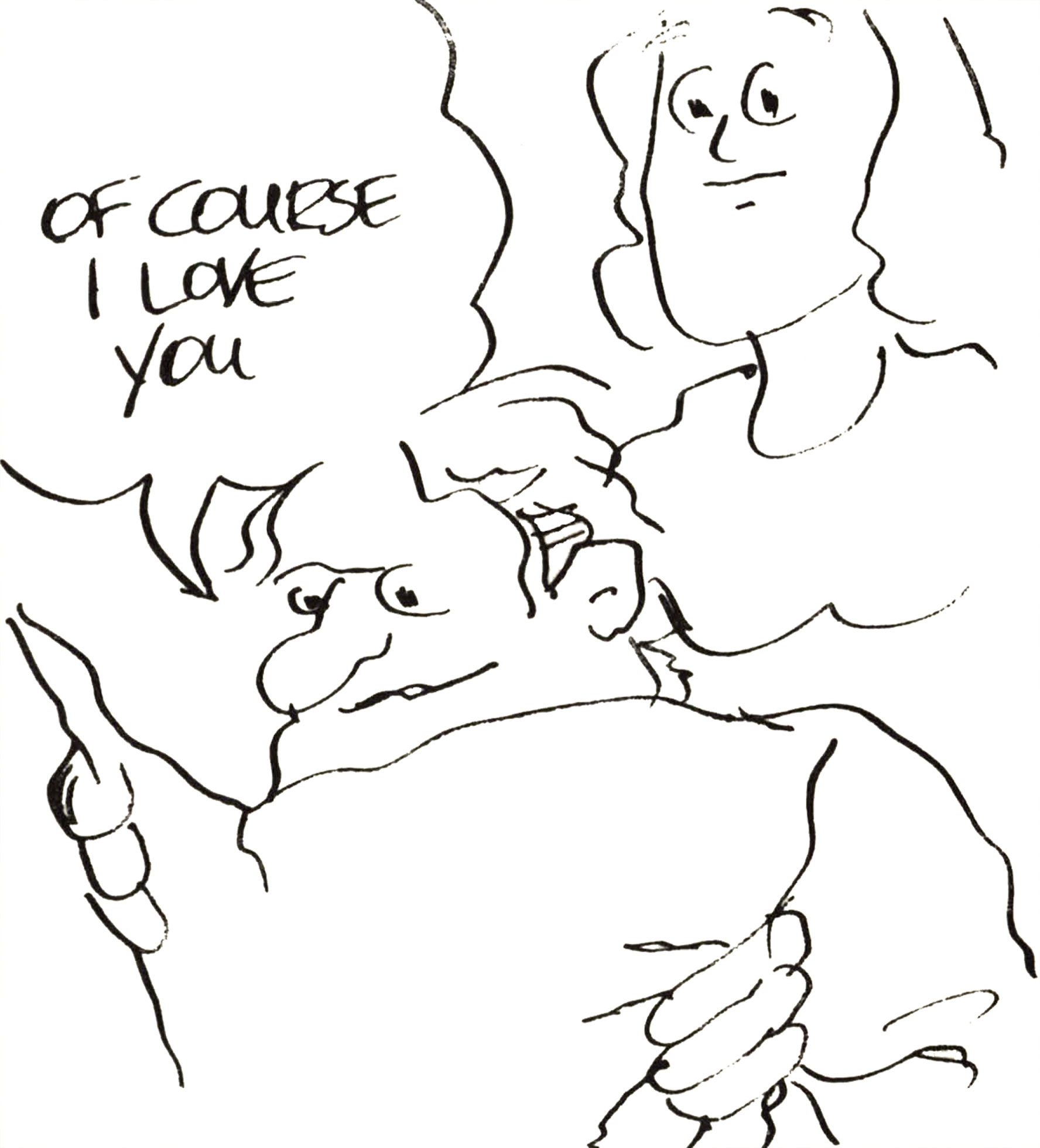LACK of communication is the single greatest factor in the destruction of relationships. Often there are crossed patterns of communication, with one partner speaking past the other instead of to him.
In Games People Play, Berne points out another pattern: the individuals no longer say what they mean but have a code they expect to be understood. This stems from difficulty in expressing our desires. For example, it has been taboo, until recently, for women to overtly initiate sexual activities. Also, there is the trouble we all have in being vulnerable. We play elaborate social and word games to try to show what we want without committing ourselves to it. We are fearful of rejection and of incurring a debt.
Other deadly cycles we can trap ourselves in are anger and frustration constantly directed inward. Most of us are hating ourselves for our failures or mistakes. We do not know how to balance our feelings and have trouble expressing our negative feelings when they occur, treating them as if they were some peculiar, personal perversity. It has somehow come to be regarded as bad that we feel jealousy or hurt or show weakness. Yet, by trying to be only half of ourselves, by only allowing the good to surface, we torment and distort our lives and relationships. The anger or jealousy we hide today will explode with accumulated anger and jealousy next week. Love, at least in part, is being able to fight well with the beloved.
Often, there is emotional fatigue in a relationship. The daily combat and long term misunderstandings have depleted the person’s resources. Depressed people and exhausted people do not make good lovers. These people need to be given to, to be held. Sometimes both partners are depressed or emotionally depleted. Here, love might well be a letting go, a separating for a rest or for good.
Love is powerful and always around. If a relationship fails, it is not the end, but a chance to rediscover ourselves, and to rediscover love.





